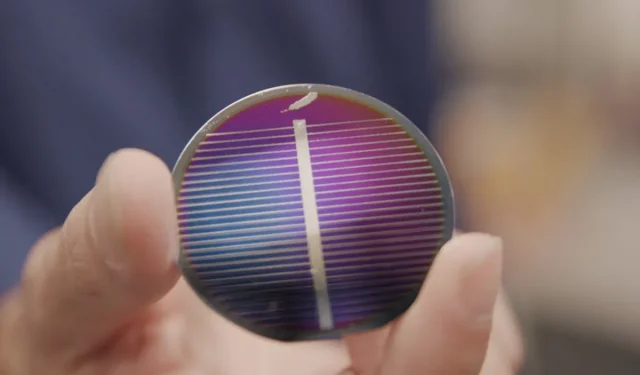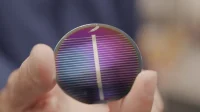Blue Origin makes solar panels by melting imitation moon dust. Very interesting technology, will we see it on the moon?
Whether or not Blue Origin makes a moon landing, the company could play a critical role in the feasibility of human lunar operations. Aerospace company Jeff Bezos says it can produce solar panels and transmission cables using imitation regolith — regolith is a layer of dust on the surface of a celestial body, in this case the moon.
Blue Origin makes solar panels by melting simulated moon dust
The Blue Alchemist technique uses molten compound electrolysis to separate aluminum, iron and silicon from lunar soil from bound oxygen to recover materials. This process makes it possible to produce solar panels, protective glass and aluminum wiring using only sunlight and silicon from the reactor.
This approach would not only save researchers from having to import materials, but would also cause less damage to the Moon and Earth. No carbon emissions, no chemicals, no need for water. According to Blue Origin, solar panels created in this way can work on the Moon for a decade, despite very “harsh”conditions.
Very interesting technology, will we see it on the moon?
As Ars Technica explains, Blue Origin is pitching this as a solution for the Artemis program and NASA missions to Mars. Thus, the US space agency could establish bases or other long-term facilities while minimizing environmental impact. While the idea of using regolith to create outposts is not new, previous efforts have mostly focused on habitats rather than energy sources that will make these complexes work.
At this stage, it’s impossible to know if Blue Origin’s technology will make it to NASA, especially when we know that the company’s relationship with the US administration is not at its best. While NASA does support the Orbital Reef space station and will use New Glenn for a science mission to Mars, it has awarded SpaceX a major lunar lander contract, depriving Blue Origin of a $2.9 billion deal. As innovative as Blue Alchemist’s technology is, its success is not guaranteed. Will we see him on the moon? To be continued!


